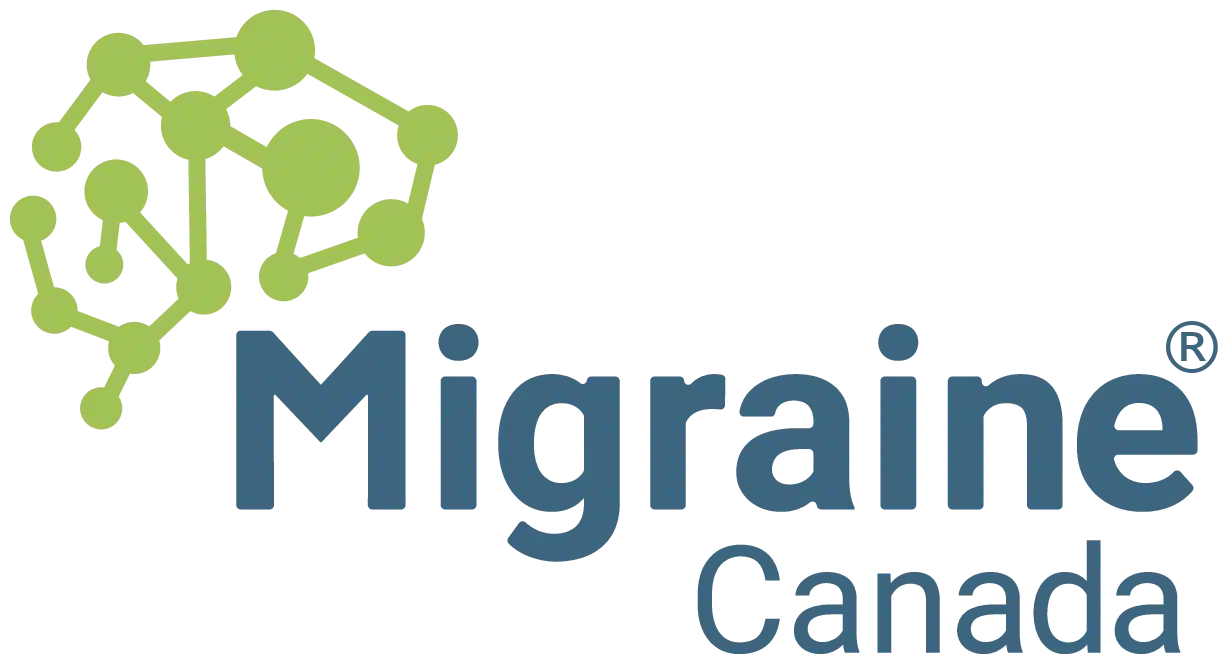Acute Treatments
Acute treatments focus on stopping a migraine attack once it has commenced. This is distinct from preventive treatments, which aim to reduce migraine frequency.
On this page, you will find:
Tips for Controlling Migraine Attacks with Acute Treatments
List of Acute Treatments Available in Canada
Common Questions About Acute Medications for Migraine Attacks
Migraine Canada Videos, Articles & Resources about Acute Treatments
Table of Acute Treatments: Classes, How They Work, and Side Effects
Neuromodulation devices can also be used to treat migraine attacks. For more information, please see our Neuromodulation Device page or our webinar with Dr. Alex Melinyshyn.
Tips for Effectively Controlling Migraine Attacks Using Acute Treatments:
- Aim for Relief: The goal is to return to function or at least a decrease in symptoms.
- Explore Options: Work with your care provider to try different treatments.
- Track Patterns & Progress: Be sure to observe your attacks and be aware of how they start and evolve. Use a migraine diary (Post #5: How to Use a Migraine Diary) or our Canadian Migraine Tracker App(app landing page)) to record results.
- Early Intervention: Treat early, it will increase your success rate.
- Treatment Combinations: For severe attacks, discuss medication combinations (NSAID and Triptans) with your healthcare provider.
- Address Nausea: Use specific medications to treat nausea if you experience it
- Alternative Methods: Consider nasal sprays, injections, and other non-pill options for severe attacks.
- Natural Remedies: Techniques like hot/cold therapy, mint rollers, acupressure, and breathing exercises can be beneficial.
- Tailored Approach: Use different treatment options for attacks of different severity.
- Prevent Overuse: Avoid frequent medication use and consider preventive strategies.
- Explore Gepants: These medications are specifically indicated for migraine and do not lead to medication overuse headache.
- Avoid Cannabis and Opioids: Cannabis is better avoided for migraine treatment until more research is available. Avoid opioids, they should be only a last resort
Frequently Asked Questions
What are acute treatments for migraine?
Acute treatments focus on stopping a migraine attack once it has commenced, distinct from preventive treatments that aim to reduce migraine frequency.
What is the goal of an acute treatment?
Efficient and reliable acute treatment aims to restore your ability to resume daily activities within 1 to 2 hours. The medication should be effective, reliable, and have no significant side effects. If you have severe attacks, the goal may be to decrease symptoms (pain, nausea, sensory sensitivity, others) even if a return to function is not possible.
How can I tell the difference between migraine attacks and tension headaches?
Identifying migraine symptoms such as light sensitivity, irritability, nausea, and throbbing pain can help distinguish migraine attacks from tension headaches. Recognizing these warning signs can aid in early treatment, potentially increasing success rates. Many migraine attacks start at a mild degree but then deteriorate.
How will I find the right acute treatments for me?
Since each patient responds differently, finding the right acute treatment may involve trying various medications and combinations. It is rare for a treatment to be effective for 100% of attacks, so we suggest that you try each new medication for a few three separate migraine attacks. Tracking responses in a migraine diary and evaluating benefits and side effects can guide treatment decisions in consultation with your healthcare provider.
When should I treat the migraine attack? Sometimes I try to wait to see if it will pass.
Treating the attack early increases your chances of success and return to function. For some people, their migraine attacks are always the same, but others have different types, some rising quickly, others slowly. Some start during sleep. The sequence of symptoms may vary, but once an attack is full blown, it becomes more difficult to stop it. In the case of gepants, studies have shown that treating during your prodrome (if you have a recognizable and reliable one) can be beneficial.
My migraine attacks come on quickly, or I wake up with them. What should I do?
Consider asking your doctor for a medication that does not need to be absorbed by the stomach, such as a nasal spray, suppository, or injection. Such options may be effective.
Can I combine several acute treatments?
The different categories of acute medications may be taken together to treat different parts of the attack. For example, you may need something for pain and nausea. Different migraine medications act through various mechanisms, and combining them may increase your chances of success. Different attacks may require different combinations.
What about rebound headache? How many days per month can I safely treat?
It is crucial to exercise caution if experiencing headaches more than two days a week. The risk of drug-induced (rebound or medication overuse) headache starts at 10 days per month, and gets higher with higher frequency. If you have headaches more often than this, you may need a preventive medication to help reduce the frequency of your migraine attacks. As a note, gepants taken acutely do not induce rebound, they could even add a preventive effect.
Can I use opioid medications for migraine?
Opioids are usually avoided for migraine treatment because they are more likely to result in a temporary response where the migraine returns in a few hours or the next day. The brain becomes more sensitized to pain following the use of opioids and there is greater risk for rebound headaches. The pattern of migraine often becomes more frequent and more severe in people who use opioids.
FAQ References
References:
- Worthington I, Pringsheim T, Gawel MJ, Gladstone J, Cooper P, Dilli E, et al. Canadian Headache Society Guideline: acute drug therapy for migraine headache. Can J Neurol Sci. 2013;40(5 Suppl 3):S1-s80.
- Gilmore B, Michael M. Treatment of acute migraine headache. Am Fam Physician. 2011;83(3):271-80.
- Mayans L, Walling A. Acute Migraine Headache: Treatment Strategies. Am Fam Physician. 2018;97(4):243-51.
- Rapoport AM. Acute treatment of migraine: established and emerging therapies. Headache. 2012;52 Suppl 2:60-4.
More Resources on Acute Treatments

Migraine Talks Episode 5: Refractory Migraine
In episode #5, patient advocate Kelly Hayes-Crook joins Dr. Elizabeth Leroux to share her journey with refractory headaches. Every individual's experience is unique, and finding your own balance may...
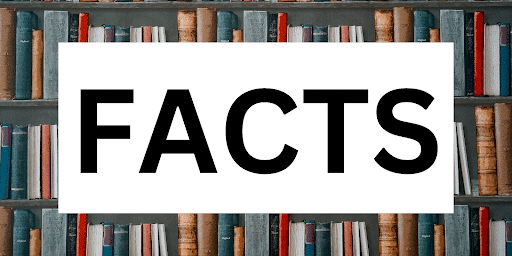
Top Ten Facts on Migraine for Beginners
Are you new to understanding migraine? This article covers the top ten essential facts about migraine for beginners, shedding light on this complex neurological condition. Despite misconceptions,...
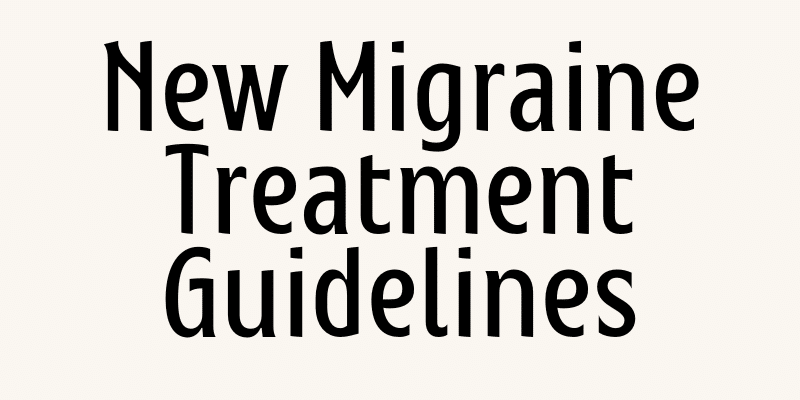
New Canadian Migraine Treatment Guidelines
The Canadian Headache Society has released its New Canadian Migraine Treatment Guidelines, featuring the latest evidence-based recommendations to enhance migraine care. These updated Migraine...
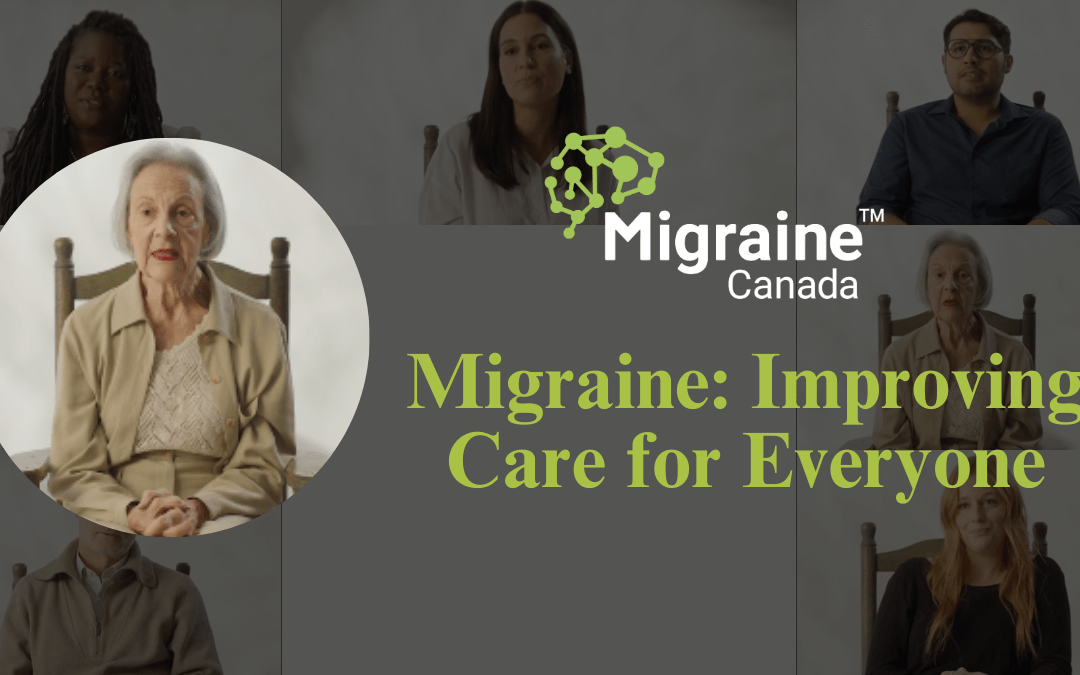
Migraine: Improving Care for Everyone
Welcome to "Migraine: Improving Care for Everyone," featuring English subtitles. This video explores the broader implications of migraine care, emphasizing the value of resources provided by...

Migraine: How it Affects Me
Welcome to "Migraine: How It Affects Me,". This video delves into the multifaceted impact of migraine, showcasing personal stories that highlight the diverse symptoms and triggers individuals face....
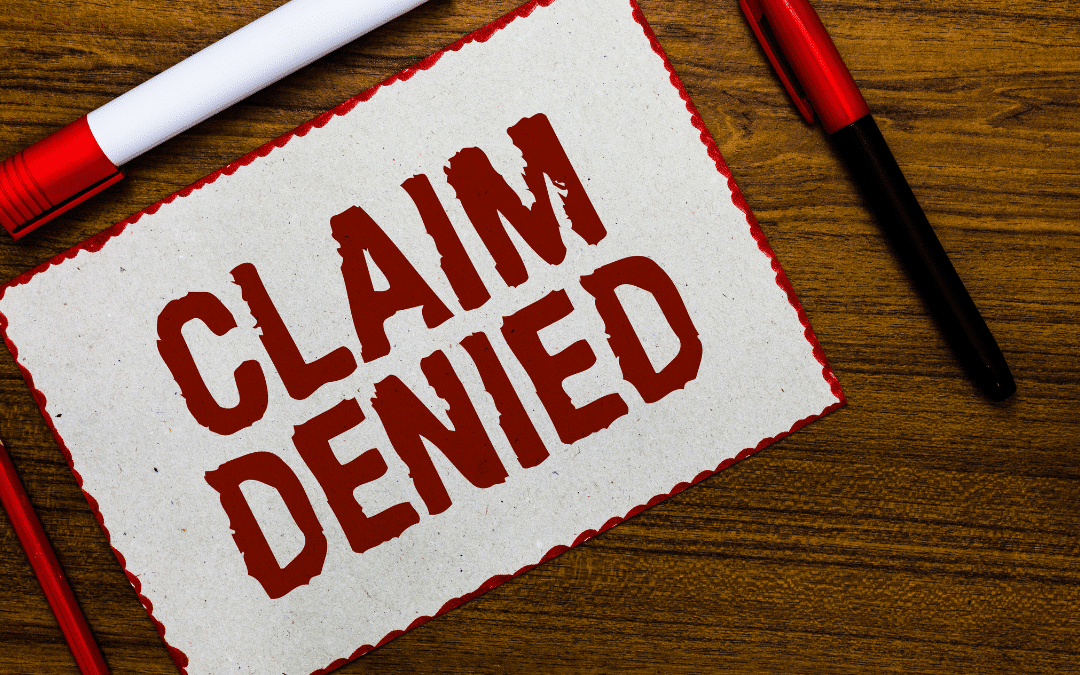
Will My Insurance Company Cover the Combination of Botox and CGRP Antibody?
Considering the combination of Botox and a CGRP monoclonal antibody (BTX + CGRP MAB) for migraine treatment? Many insurance providers currently do not cover this therapy, despite its potential...

Detailed guide on how to use a headache diary
Tracking your migraine attacks through a diary is crucial for effective management. This guide will help you understand how to use a migraine diary to track attack frequency, symptoms, medication...
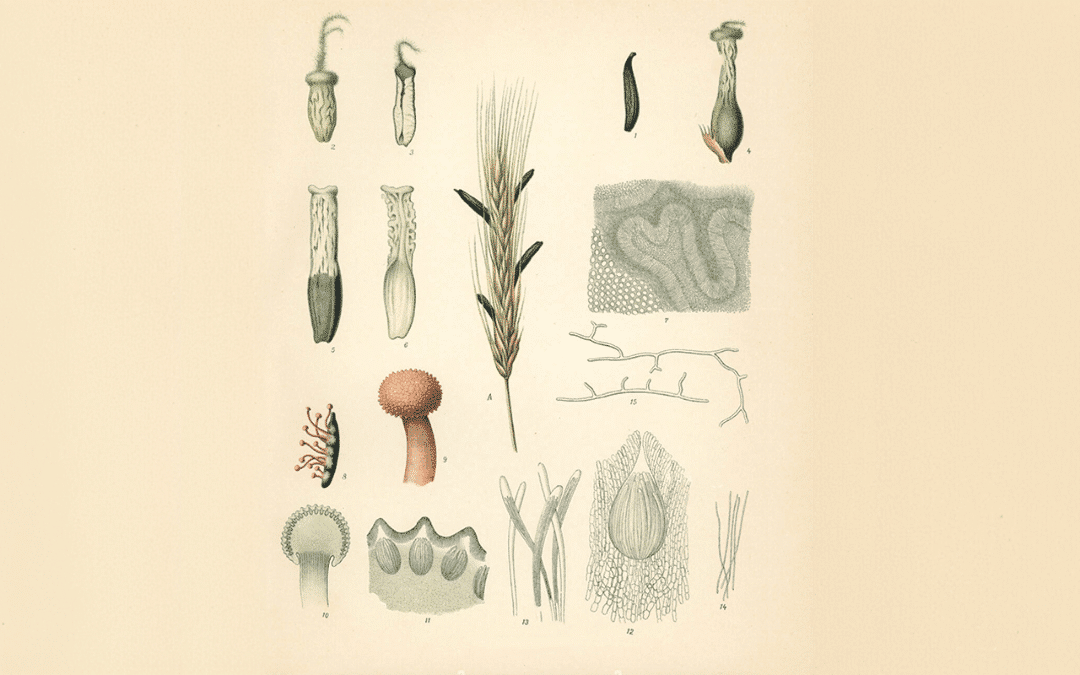
The Fascinating History of Triptans
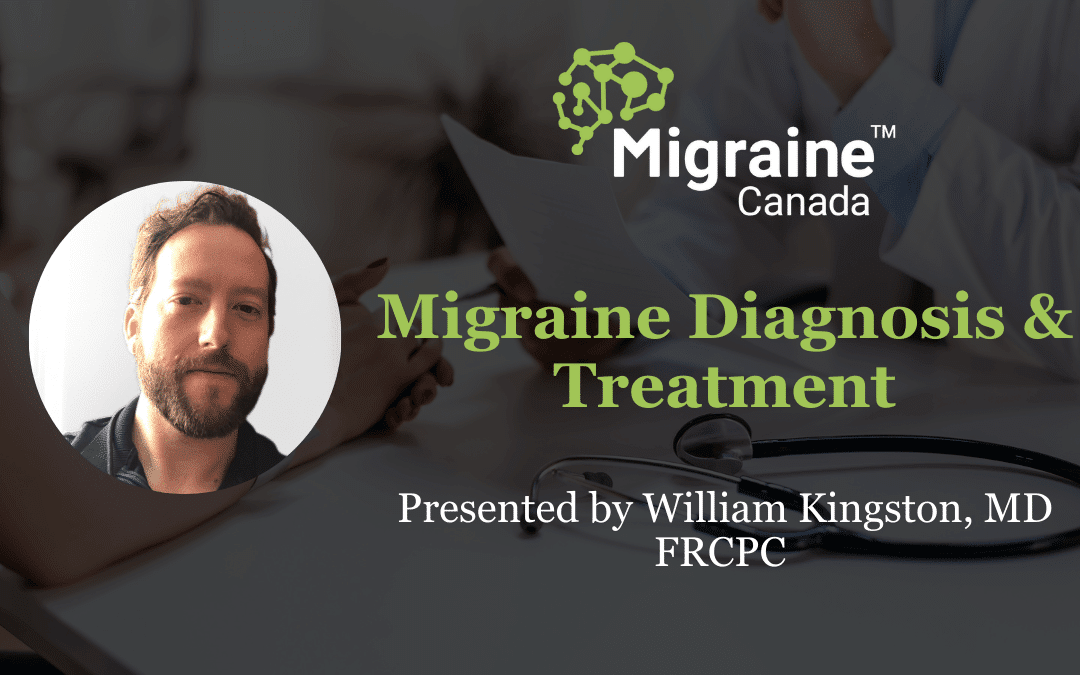
Migraine Diagnosis & Treatment
Join Dr. Will Kingston, MD, FRCPC, as he discusses essential topics in migraine diagnosis and treatment. Learn about effective diagnosis methods, the critical role of early intervention in managing...
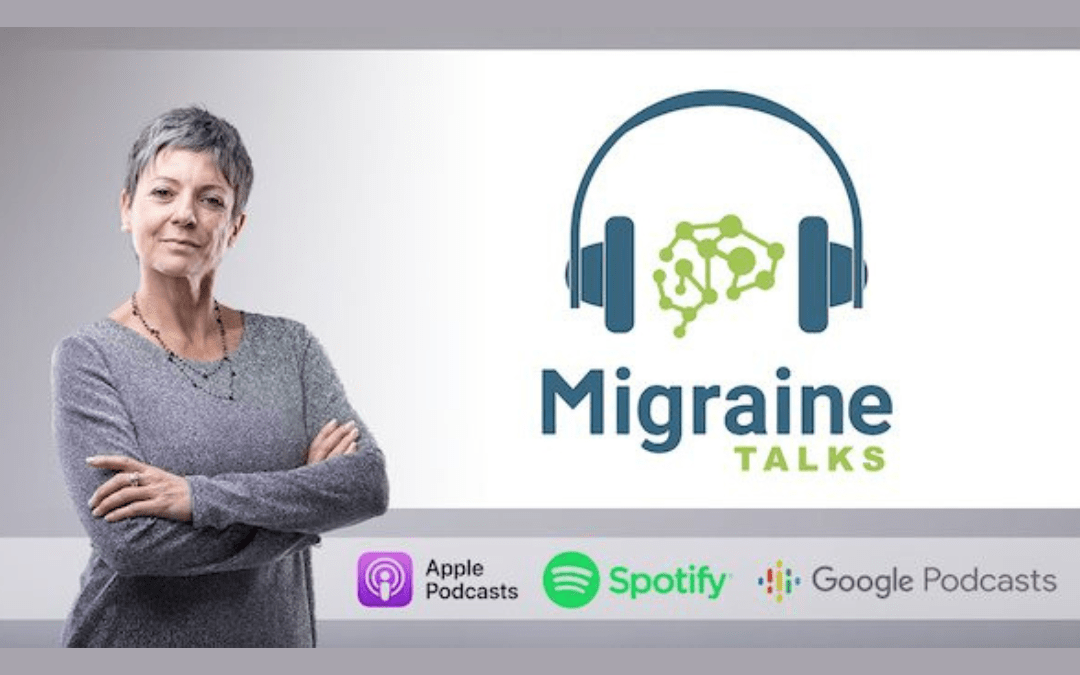
Migraine Talks : Podcast
Migraine Canada™ is proud to present the “Migraine Talks” podcast hosted by Dr. Elizabeth Leroux, neurologist and headache specialist.
This is a podcast to learn, share, and live better.
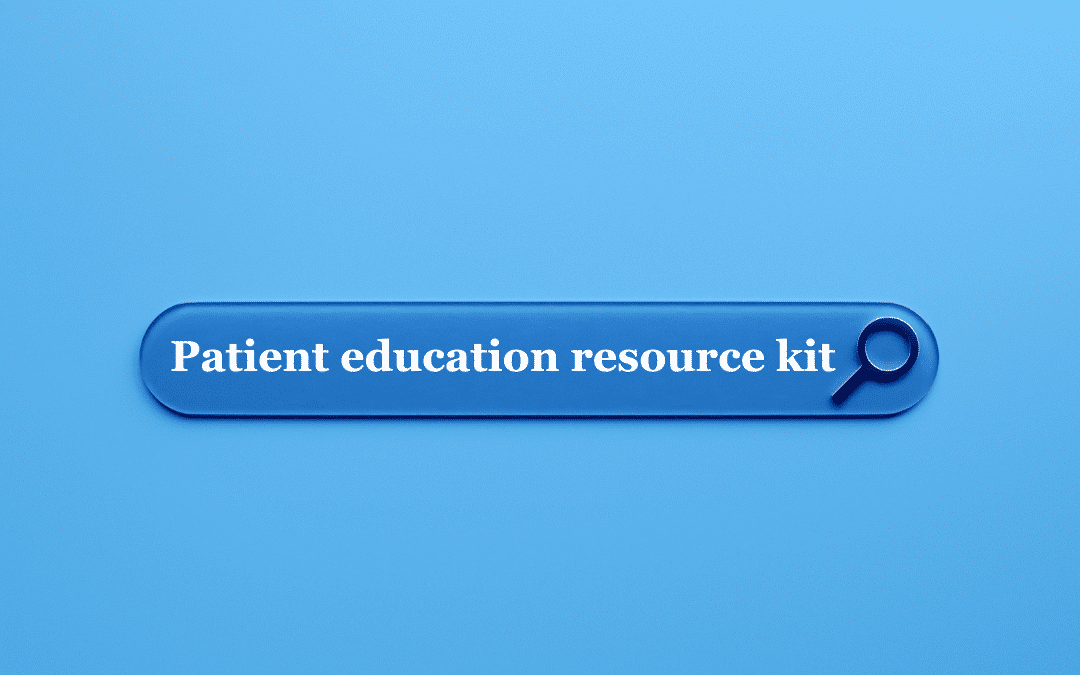
Patient Education Resource Kit: Migraine Management in one source!
Migraine Canada has created a comprehensive digital Patient Education Resource Kit designed to empower both healthcare professionals (HCPs) and patients. This all-in-one guide covers essential...
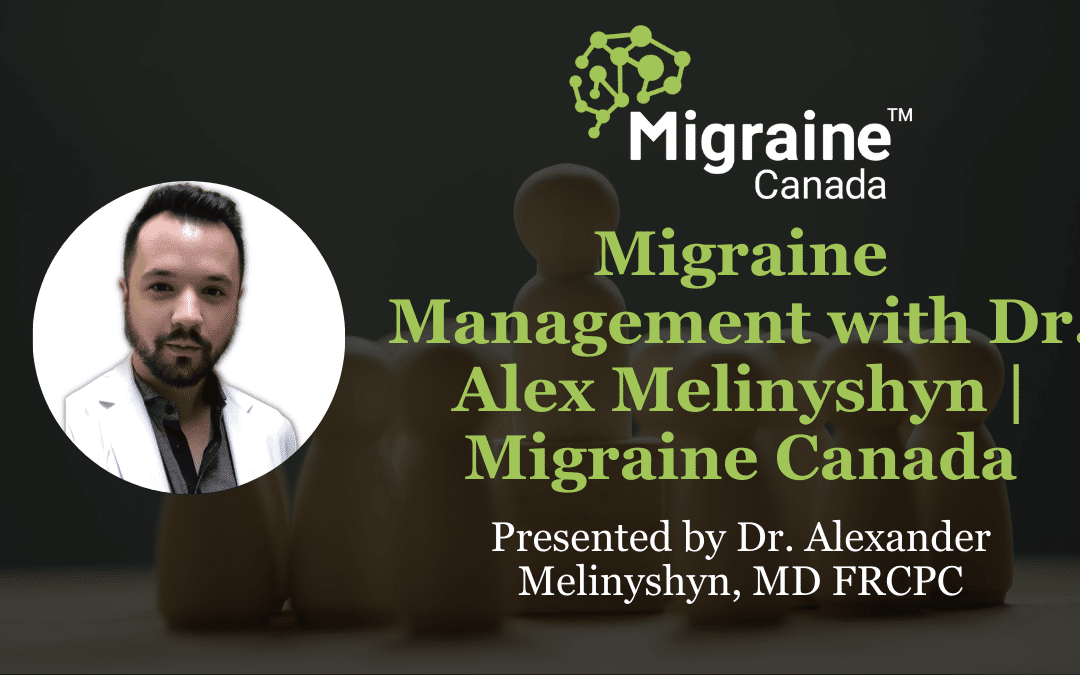
Migraine Management with Dr. Alex Melinyshyn
Welcome to an insightful discussion on acute and abortive treatments for migraine, presented by Dr. Alex Melanishin, a distinguished neurologist and headache specialist based in London, Ontario. In...
